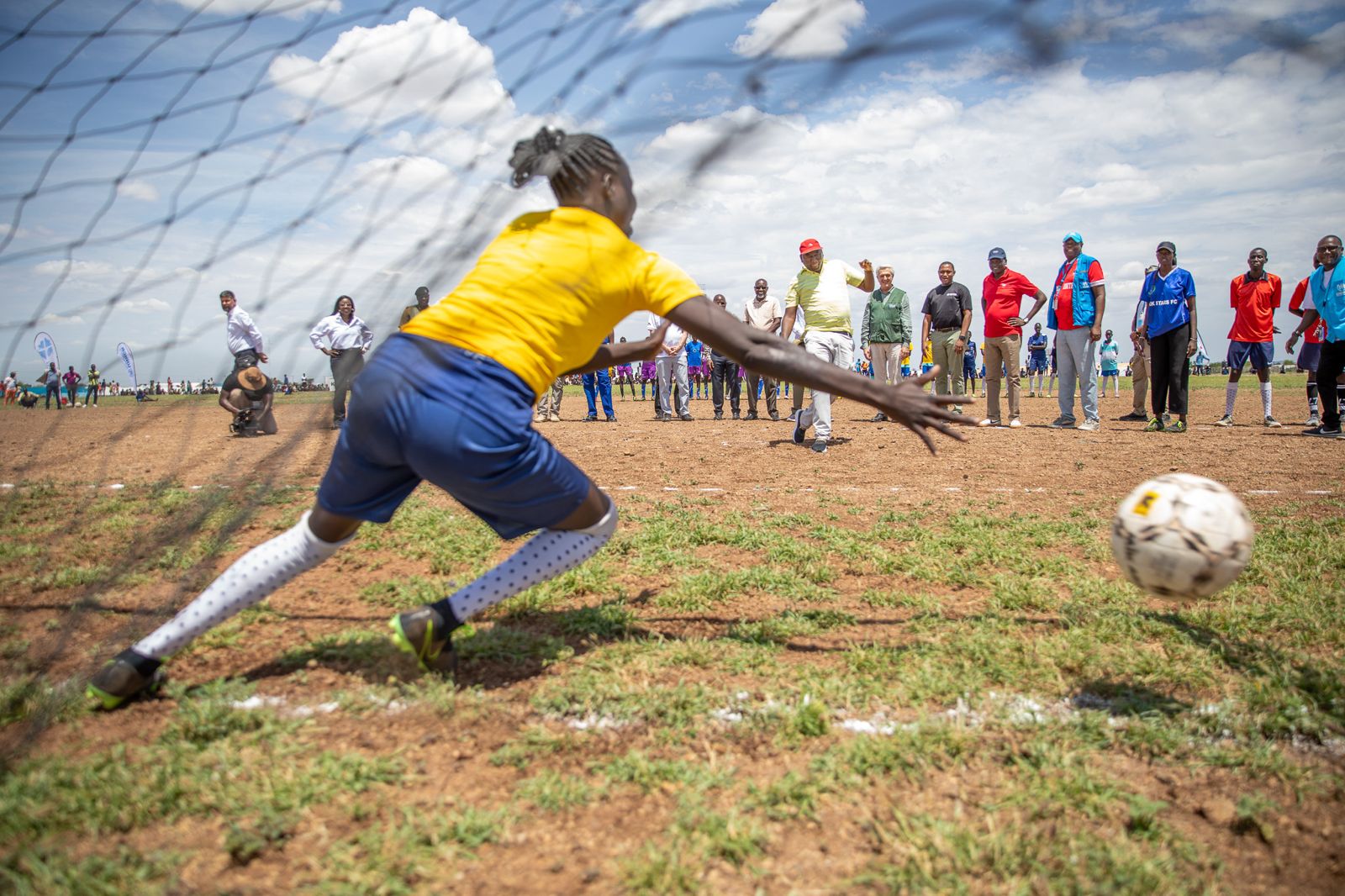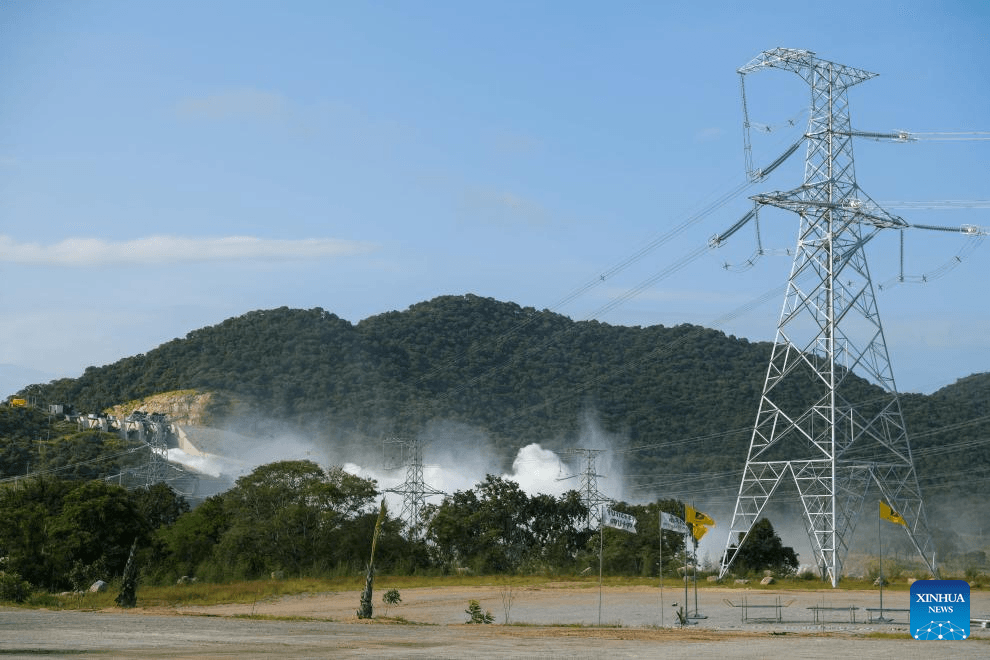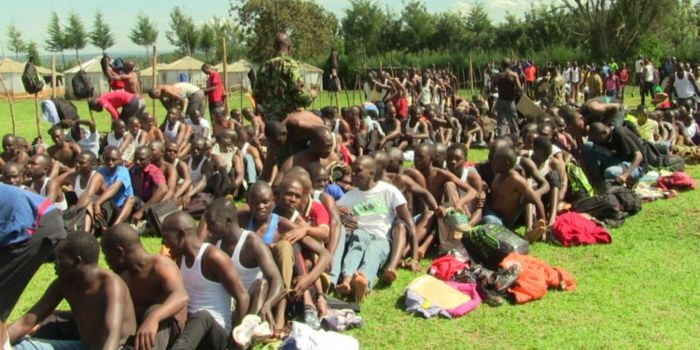

For millions of refugees worldwide, life is a daily struggle for survival, belonging, and hope.
Many find themselves navigating the challenges of displacement in foreign lands having been forced to flee from their homes and deprived of familiar comforts.
In Kenya’s Kakuma refugee camp, home to over 201,000 refugees primarily from South Sudan and Somalia, the need for community, identity, and healing is paramount.
Among the few comforts available, sports, especially soccer, stand out as a powerful tool of transformation and resilience. Its universal appeal transcends cultural and linguistic boundaries.
Played in over 200 countries, it is often accessible to refugees with limited resources since the only thing required is a ball.
For many, soccer becomes more than just a game; it is an opportunity to reclaim a piece of their lost identity and make connections in their host community.
During a visit to the Kalobeyei settlement in Kenya, the International Olympic Committee (IOC) President Thomas Bach observed firsthand how sports bring communities together.
“Sports are healing, uniting, and empowering communities,” Bach said in a visit to the camp on October 26.
The Olympic Refuge Foundation has been pivotal in supporting these programs, nurturing a shared space where refugees and nationals come together as teammates and building relationships.
Sports also give refugee children, often enduring complex trauma, a safe space to channel their energy positively.
One inspiring example of the impact of sports on refugees’ lives is Alphonso Davies, a professional soccer player born in a Ghanaian refugee camp to Liberian parents.
Now a celebrated athlete and UNHCR Goodwill Ambassador, Davies credits sports with giving him the platform to share the experiences of refugees globally.
“I want people to know about the importance of helping refugees, wherever they are, in camps or cities, in neighbouring countries or countries of resettlement such as Canada. Refugees need our support to survive but also access to education and sports, so they can fulfil their potential and truly thrive,” he said.
UNHCR, in many ways, has pushed for sports to become a bridge to normalcy and empowerment for refugees, allowing them to regain control of their lives through shared passion and purpose.
In Kakuma and beyond, sports provide a critical bridge to normalcy, offering refugees a chance to regain a sense of control and purpose in their lives.
Filippo Grandi, the UN High Commissioner for Refugees, said the impact of sports, saying that in his work with refugees, they see daily what an uplifting difference sports can make in their lives.
“Sport has the incredible power to bring hope, to heal, and to help shape the future for those forced to flee,” Grandi said.
His statement reflects UNHCR’s recognition of sports’ potential to inspire, unify, and uplift, a belief enshrined in its "Sport for Protection" approach.
The initiative prioritizes exercise, recreation, and connection, particularly for children who might otherwise lack structured activities.
In Kenya and Uganda, UNHCR has partnered with the International Olympic Committee (IOC) to establish programs that help young refugees develop life skills through sports.
Programs like “Game Connect” offer refugees the chance to engage in organized sporting events, which fosters emotional resilience, builds teamwork skills, and reduces isolation.
Mamadou Dian Balde, UNHCR’s regional director for East and Horn of Africa, points to the ripple effects of sports in fostering peaceful coexistence.
“Sport heals, unites, and contributes to peaceful coexistence,” Balde stated.
He added that Uganda and Kenya's inclusive policies play a crucial role in allowing talented refugees to thrive alongside host communities.
UNHCR’s Sport for Protection approach encapsulates this commitment, reminding the world that sports can indeed transform lives, build peace, and restore hope in communities that need it most.
During the Kakuma sports day, the government said that they are steadfast in their commitment to uplifting the lives of refugees by nurturing their welfare, celebrating their resilience, and recognizing the incredible strengths they bring to our nation.
The recent Refugee Sports Day held in Kakuma was a powerful demonstration of sports' unique ability to inspire hope and create opportunities for individuals who have endured immense challenges.
The commitment of leaders like Grandi, Bach, and Davies underscored a shared global mission to ensure that refugees have opportunities to not only survive but also grow and thrive.
Bach and Grandi had been hosted by Sports Principal Secretary Peter Tum.
Tum highlighted their shared dedication to using sports as a catalyst for empowerment and inclusion.
"Kenya is committed to leveraging sports as a tool for unity and empowerment, especially within underserved communities," he said.
He stated that events like these not only foster resilience and community but also provide a sense of belonging to young refugees.
The PS said that through sports, the youth can explore their potential and positively contribute to society.
PS Tum said the sporting activity aligns with President William Ruto’s commitment to enhancing sports facilities for refugee athletes in areas like Kakuma, to create a hub for nurturing athletic talent among refugees.
The approach, the PS added, reflects the government's vision of sports as a powerful tool for social impact, resilience, and hope for young athletes who have faced displacement.
With partnerships like those with the IOC, Tum said the government is taking strategic steps toward elevating sports as a means of societal transformation and inclusion, benefiting vulnerable groups across Kenya.
The Sport for Refugees Coalition also highlighted a transformative force for refugees' self-reliance, with programs focused on community integration, mental health, and education.
The UNHCR emphasizes sports as crucial for healing and creating social bonds, particularly among youth facing trauma.
Deputy Director Emre Kaçar said:
“Sport is a universal language” that fosters friendships and resilience across cultural lines, helping refugee children integrate with host communities."
Parfait Hakizimana, a refugee and Taekwondo instructor, described sports as “a family,” helping children gain hope and behavioural stability.
The Refugee Sports program emphasizes the life-changing impact of sports on refugees, focusing on improving mental health, fostering community, and supporting education.
It also provides a structured environment where refugees can build confidence, develop friendships, and experience a sense of belonging.
The initiative's approach reflects UNHCR’s belief that “sports can be a lifeline for young refugees,” as it promotes resilience, teamwork, and integration into host communities, thereby empowering refugees to overcome challenges and pursue brighter futures.
Programs like Sport for Protection embody this commitment, reminding the world that sports have a unique ability to transform lives, build peace, and restore hope where it’s most needed.











